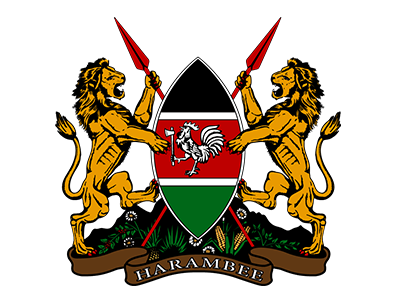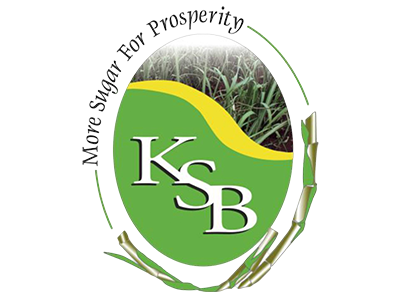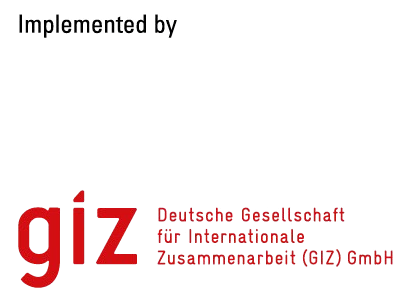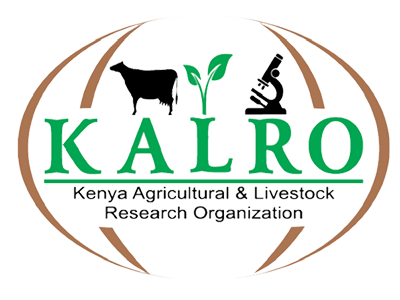Improving Value for the Small Holder Sugarcane Farmer

Small-scale sugarcane farmers in Kenya form the backbone of the country's sugar industry and play a pivotal role in bolstering the rural economy. Despite being responsible for a substantial 94% of the cane milled in Kenya, these farmers confront numerous obstacles that hinder their progress. To ensure the success and longevity of the sugar industry, it is imperative to address these challenges and empower the small-scale farmers. Among the primary issues faced by these farmers is low productivity. Often, this is due to outdated farming techniques, limited access to modern agricultural inputs, and inadequate training. By introducing improved farming practices, providing access to high-quality seeds, fertilizers, and equipment, and offering relevant training programs, their productivity can be significantly enhanced. Additionally, sustainable farming methods can be encouraged, such as efficient water management and integrated pest control, contributing to the industry's overall ecological health.
Another critical area that demands attention is the lack of financial resources. Access to affordable credit and micro-loans tailored to the needs of small-scale farmers can enable them to invest in their farms, purchase essential inputs, and expand their operations. Moreover, providing them with agricultural insurance can mitigate the risks associated with unpredictable weather conditions and market fluctuations. Market linkages play a pivotal role in the success of small-scale sugarcane farmers. Strengthening connections between farmers and sugar processing companies or cooperatives can lead to more stable prices for their produce. Furthermore, it can foster an environment where farmers receive fair compensation for their efforts, encouraging them to invest in their farms and improve the overall quality of their sugarcane. Supporting the development and prosperity of small-scale sugarcane farmers in Kenya is integral to the growth, sustainability, and economic viability of the sugar industry. By addressing their specific challenges through targeted strategies, these farmers can enhance their productivity and profitability, creating a more robust and self-reliant sugar industry in the country. The collective effort to uplift these farmers will have a lasting positive impact on rural livelihoods, economic growth, and the overall well-being of Kenya's sugar industry.
Unlocking Soil Potential for Improved Sugarcane Productivity
Soil fertility is a significant factor in sugarcane growth and production. Soils in sugarcane growing zones in Kenya are degraded due to poor soil management practices. In most cases, sugarcane farmers apply a blanket prescribed inorganic fertilizer regime to soil, regardless of what the actual nutritional requirements are. This has negatively affected the soil quality in the industry and significantly increased the cost of production at the farm level.
Acidification of soils, through blanket application of fertilizer has contributed to declining yields and low sugarcane ratoonability over the years, leading to declining enterprise profitability and farmer incomes. By adopting soil management practices such as regular soil testing, integrated nutrient management, crop rotation, and intercropping, sugarcane farmers can unlock the full potential of their soil and increase productivity.
Additionally, promotion of conservation agriculture practices such as minimum tillage, mulching, and cover cropping can help improve soil health and fertility, leading to increased sugarcane yields. By unlocking this potential, sugarcane farmers in Kenya can improve their livelihoods, increase food security, and contribute to the country’s economic growth. Empowering farmers with knowledge and resources to implement sustainable soil management practices is vital for a thriving and resilient sugar industry in Kenya.

Modern Milling Technologies to Minimize Wastage

The Kenyan sugar industry can achieve self-sufficiency by minimizing wastage in sugar processing, which can significantly impact its profitability and sustainability. Wastage can result from inefficient processing techniques, poor quality cane, outdated processing machinery, and improper disposal of by-products.
Embracing modern milling technologies present significant opportunities to minimize waste generation and improve efficiency. Through adoption of high-efficiency extraction systems for maximum sugar recovery and optimization of processes, the industry can reduce wastage, increase its sugar output, and improve resources management. Recycling and value addition of the sugar production process by-products, such as molasses and bagasse, is important in creating additional revenue streams for the industry.
There is also need to implement quality control measures throughout the production process that can ensure that the sugarcane delivered is of high quality, mature and free from contaminants that can affect the sugar yield and quality. By adopting these strategies, the sugar industry can become more self-sufficient and economically viable, reducing its dependence on external factors such as fluctuating sugar prices and rising production costs. Additionally, minimizing wastage can help reduce the industry’s environmental impact, making it more sustainable in the long run.
Adoption of Mechanization to Improve Efficiency
The adoption of mechanization in the Kenyan sugar industry holds great potential for improving efficiency, increasing yields, and reducing production costs. This can ensure that operations in the sugarcane value chain including land development, cane production practices in the farm, transport and processing are executed faster and with high accuracy resulting in higher returns.
By embracing modern farming, harvesting, and processing technologies, the industry can overcome labor challenges, enhance overall productivity, and remain competitive in the global market. However, to ensure successful adoption, it is crucial to address challenges through targeted policies, training programs, and sustainable practices. The collaborative efforts of farmers, sugar mills, industry stakeholders, and government support can drive the successful integration of mechanization in the Kenyan sugar industry, contributing to its long-term growth and prosperity. Kenya can become more self-sufficient, producing enough sugar to meet domestic demand while reducing the need for imports. This, in turn, can lead to increased economic growth, job creation, and improved livelihoods for farmers and industry players.

Sugar Value Chain Financing

The sugar value chain in Kenya involves a series of interconnected activities, from sugarcane development and cultivation to sugar processing and distribution. Financing plays a crucial role in ensuring the smooth functioning and growth of each stage within the value chain. Adequate and suitable financing mechanisms that address the diverse needs of stakeholders along the value chain are essential for their empowerment, enabling them to invest in modern technologies and equipment, improve infrastructure, adopt sustainable practices, and increase their capacity to meet local demand. Access to credit enables small-scale sugarcane farmers to acquire quality seedcane, fertilizers, and pesticides, leading to improved yields and higher incomes. Upgrading mills with modern processing systems, timely maintenance and repair of machinery are vital to avoid downtime and ensure consistent production.
There is also need to invest in transport networks which ensures efficient transportation of sugarcane from farms to mills and finished sugar products to local and international markets, minimizing losses and delays in the supply chain. A well-structured financing system contributes to the development of a sustainable sugar industry. Government initiatives, public-private partnerships, and inclusive financing approaches are key to creating a robust financing ecosystem that supports the long-term development of a vibrant and resilient sugar industry in Kenya. Collaborative efforts between the government and financial institutions can design financing schemes with favorable terms and flexible repayment options, addressing the seasonal nature of the sugar industry and improving cash flow management. With this, the country can reduce its reliance on imported sugar, create more jobs, and enhance its food security. Additionally, accessing new markets and diversifying products can increase the industry's incomes and contribute to economic development and social prosperity in Kenya.
Leveraging Digital Innovations for Sustainability
Leveraging digital innovations in the Kenyan sugar value chain offers transformative possibilities that can revolutionize the industry and address pressing challenges. Precision agriculture, enabled by satellite imagery and data analytics, allows farmers to precisely manage their crops, leading to optimized irrigation and fertilization, reduced chemical usage, and minimized environmental impact.
This not only boosts sugarcane yields but also supports sustainable agricultural practices, conserving natural resources for future generations. Blockchain traceability is a game-changing digital tool that can enhance transparency and build trust along the supply chain. By recording every transaction and process in an immutable ledger, stakeholders can track the journey of sugarcane from the farm to the final product, ensuring ethical practices and providing consumers with the assurance of a sustainably-sourced product. IoT monitoring allows sugar mills to achieve real-time visibility into their operations, optimizing energy consumption and maintenance schedules, thereby reducing operational costs and minimizing downtime.
Additionally, the integration of smart sensors can enhance product quality control, ensuring that the final sugar products meet international standards. Digital marketing platforms open new doors for the Kenyan sugar industry to reach global markets, connect with potential buyers, and promote sustainable practices to eco-conscious consumers. This, in turn, fosters market diversification, reducing reliance on a single market and enhancing the industry's resilience against market fluctuations.
Embracing digital innovations present immense opportunities for the sugar industry in Kenya to become more sustainable, productive, and economically viable, benefiting all stakeholders in the value chain. Therefore, by capitalizing on precision agriculture, blockchain traceability, IoT monitoring, and digital marketing, the industry can optimize its resource utilization, reduce environmental impact, and tap into new market opportunities.

Climate Change Resilience and Mitigation

Climate change has emerged as a formidable challenge, casting a shadow of uncertainty over the agricultural sector in Kenya and globally. In the face of this pressing challenge, the Kenyan sugar industry finds itself at a crucial juncture, where proactive measures to mitigate the impact and fortify climate change resilience have become imperative.
The industry's ability to ensure sustainability and self-sufficiency hinges on its capacity to confront the multifaceted challenges presented by shifting climatic patterns. Understanding the unique vulnerabilities of the Kenyan sugar industry to climate change is paramount.
Erratic rainfall patterns, prolonged droughts, increased temperatures, and evolving pest dynamics threaten both small-scale farmers and larger industry players. These factors disrupt sugarcane growth, compromise yield and product quality, and undermine the industry's stability.
The Kenyan sugar industry's journey towards climate change resilience and self-sufficiency demands a comprehensive and collaborative approach involving farmers, scientists, and industry experts.
By implementing innovative practices, embracing sustainable technologies and collaborative partnerships, fostering policy support, and nurturing community engagement, the industry can position itself as a model of sustainability and adaptation in the face of a rapidly changing climate.
Interested in Booking an Exhibition Space? Get in Touch to Book Today!
Rates for Local (Kenyan) exhibitors are KES. 14,999 and USD 500 for International exhibitors
Contact us via email on info@sugarinnovation.org or call us on +254 703 802247 to get an invoice.
Meet Our Esteemed Speakers and Panelists
Discover the thought leaders driving conversations on innovation and transformation in the sugar industry.








